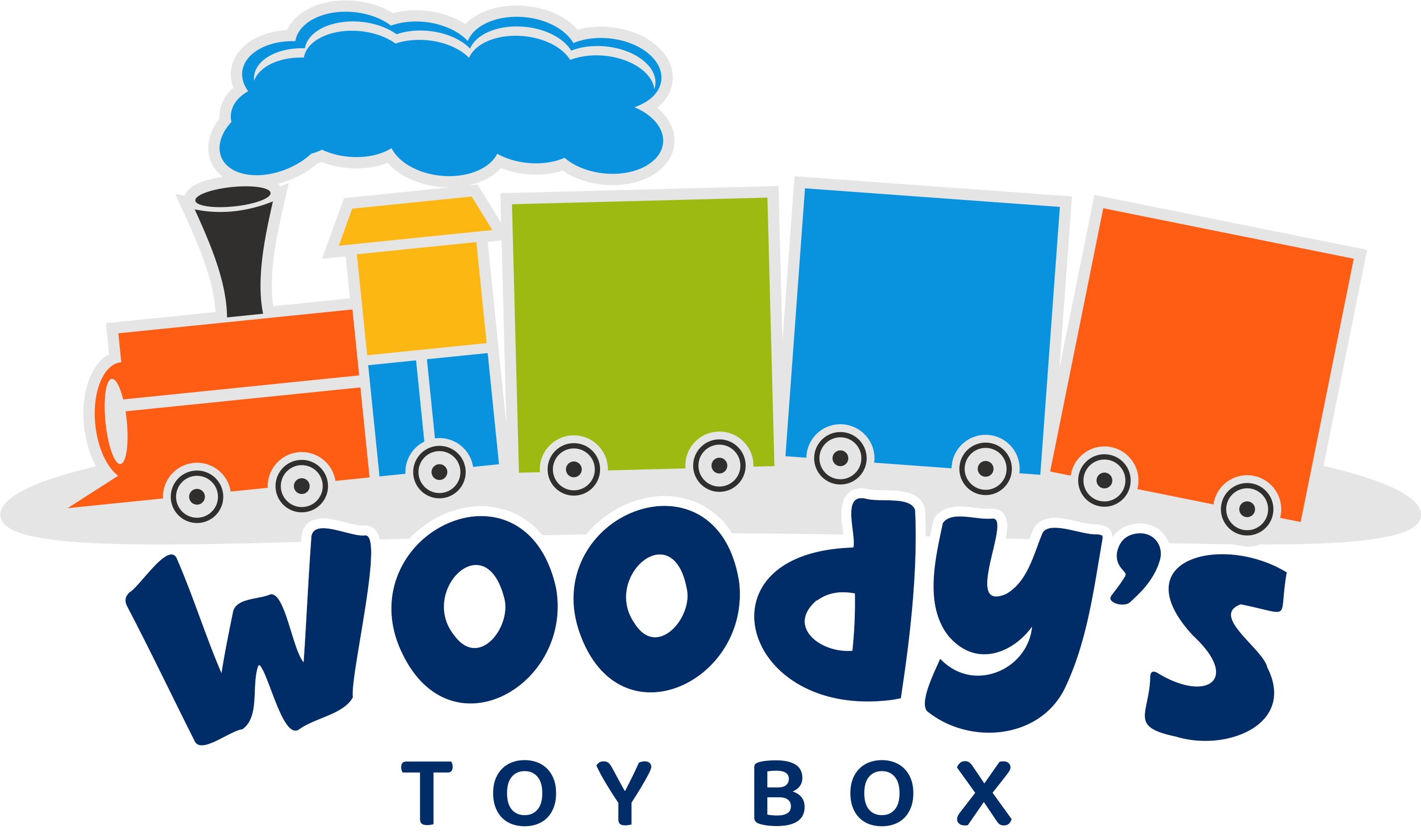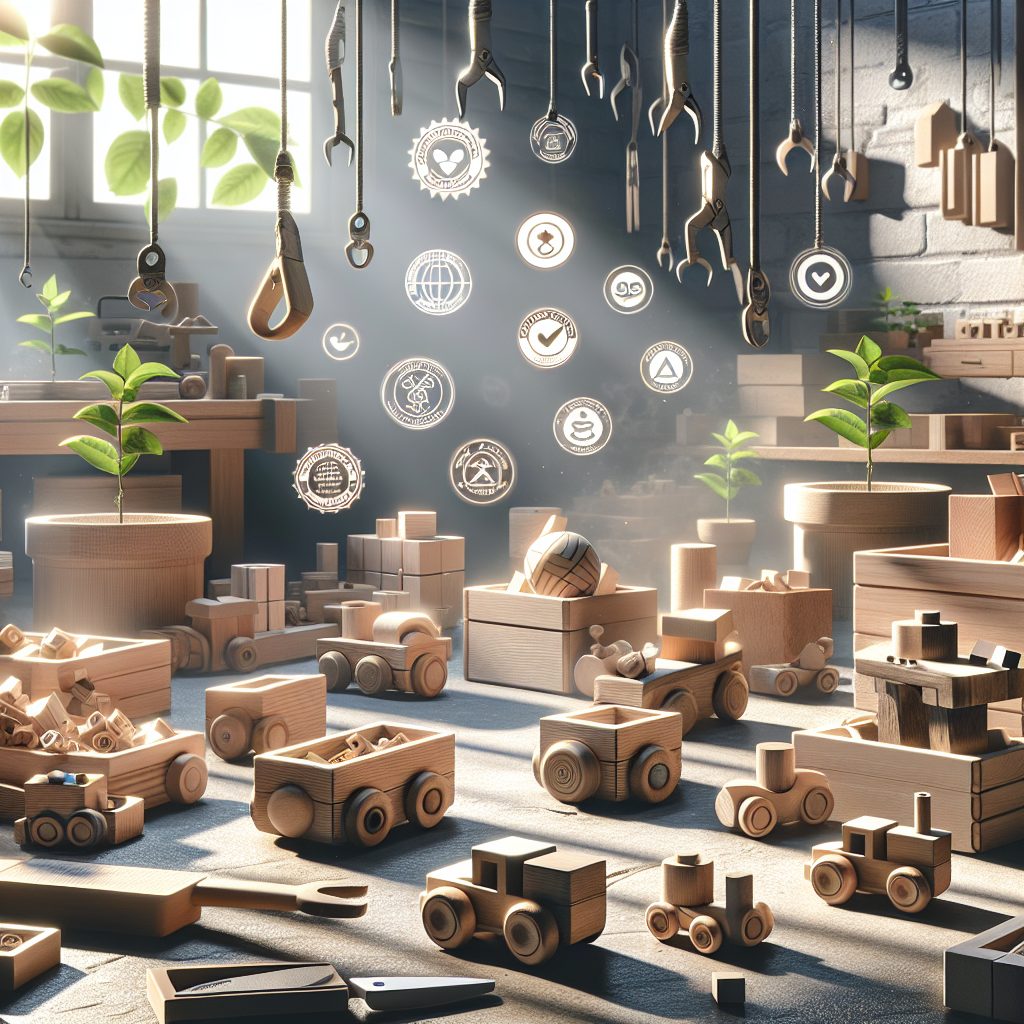Navigating Certifications in Sustainable Wooden Toys can be a complex and overwhelming task for both consumers and manufacturers alike. With the increasing demand for eco-friendly and socially responsible products, it is crucial to understand the various certifications and regulations associated with sustainable wooden toys. One unique fact to note is that wooden toys have been a popular choice for children for centuries due to their durability, natural aesthetic, and non-toxic properties. However, in today’s world, it is important to ensure that these toys are sourced and produced in a sustainable and ethical manner.
When it comes to certifications, one key impact is the assurance of sustainability throughout the entire supply chain. For instance, certifications such as Forest Stewardship Council (FSC) guarantee that the wood used in the toy’s production comes from responsibly managed forests. This ensures that no illegal logging or deforestation activities have taken place. Additionally, certifications such as the Ethical Toy Program (formerly ICTI CARE) focus on social responsibility, ensuring fair labor practices and safe working conditions for workers involved in the manufacturing process.
Moving forward, this article will delve into the key takeaways of navigating certifications in sustainable wooden toys. From understanding the different standards to deciphering the labels and logos, we will provide you with the necessary knowledge to make informed decisions as a consumer or manufacturer. Join us as we explore the world of sustainable wooden toys and unravel the complex web of certifications that ensures their eco-friendliness and ethical production.
Key Takeaways
1. Certifications play a vital role in ensuring the sustainability of wooden toys, addressing concerns such as deforestation and environmental impact, making it easier for consumers to make informed choices.
2. The FSC certification is widely recognized and guarantees that the wooden toy was sourced from responsibly managed forests, promoting conservation, and protecting animal habitats.
3. The PEFC certification is an alternative to FSC and provides assurance that the wooden toy was sourced from sustainably managed forests, while taking into consideration social and economic factors as well.
4. The Toy Safety Certification ensures that wooden toys meet safety standards, ensuring that they are free from harmful substances, have appropriate designs, and do not pose any choking hazards.
5. Social certifications such as Fairtrade promote ethical practices in the supply chain, ensuring that the workers involved in the production of wooden toys are treated fairly and receive fair wages, allowing consumers to support companies that prioritize fair labor practices.
seo optimized article title question: How to Navigate Certifications in Sustainable Wooden Toys?
Understanding the Importance of Certifications
When it comes to sustainable wooden toys, certifications play a crucial role in ensuring their environmental and ethical standards. In this section, we will explore why certifications are important and how they benefit both consumers and the environment.
1. Types of Certifications
There are various certifications for sustainable wooden toys, each with its own criteria and focus. It’s essential to understand the different types, such as FSC, PEFC, and B Corp, to make informed decisions when purchasing or selling these toys.
2. FSC Certification for Sustainable Sourcing
The Forest Stewardship Council (FSC) certification ensures that the wood used for making toys comes from responsibly managed forests. We will delve into the requirements and process of obtaining FSC certification, as well as its benefits for sustainable wooden toy manufacturers.
3. PEFC Certification for Chain of Custody
The Programme for the Endorsement of Forest Certification (PEFC) focuses on the traceability of wood throughout the supply chain. This section will explore how PEFC certification guarantees that the wooden toys you purchase comply with sustainable sourcing practices.
4. B Corp Certification for Sustainability and Social Impact
B Corp certification goes beyond just environmental considerations and encompasses the overall sustainability and social impact of a company. Discover how this certification relates to sustainable wooden toy companies and the positive changes they bring to their communities.
5. Recognizing Labels and Logos
Identifying certified sustainable wooden toys can sometimes be challenging. We will discuss common labels and logos associated with certifications, helping you make informed choices and support businesses that prioritize sustainability.
6. Challenges and Limitations
While certifications provide valuable guidance, they also face challenges and limitations. Explore the potential shortcomings of certifications in the sustainable wooden toy industry and how to navigate around them effectively.
7. Supporting Sustainable Businesses
Consumers hold great power in shaping the market and creating demand for sustainable practices. This section emphasizes the importance of supporting certified sustainable wooden toy manufacturers, helping to drive positive change in the industry.
8. Navigating Certifications for Your Business
If you are a sustainable wooden toy business owner, this part will guide you through the process of obtaining certifications and the benefits they bring to your brand reputation, marketing efforts, and overall sustainability goals.
Conclusion
In conclusion, navigating certifications in sustainable wooden toys is vital for promoting environmentally friendly practices, ensuring ethical sourcing, and supporting responsible businesses. By understanding different certifications, recognizing labels, and actively choosing certified toys, we can make a significant impact on the industry and contribute to a more sustainable future.
Guides and Tips for Navigating Certifications in Sustainable Wooden Toys
- How to research and identify trusted certification labels?
- What questions to ask toy manufacturers regarding their certifications?
- Steps to verify the authenticity of certifications for wooden toys.
- How to encourage local businesses to adopt sustainable practices through certifications?
- Actions to take as a consumer to promote sustainability in the wooden toy industry.
Frequently Asked Questions
1. What are sustainable wooden toys?
Sustainable wooden toys are toys made from wood that has been sourced responsibly, ensuring minimal impact on the environment. These toys are manufactured using eco-friendly and non-toxic materials.
2. Why is it important to navigate certifications when purchasing sustainable wooden toys?
Navigating certifications is crucial because it helps ensure the authenticity and credibility of sustainable wooden toys. Certifications provide assurance that the toys have been made using sustainable practices and materials, giving parents peace of mind about their environmental impact and safety.
3. What certifications should I look for when buying sustainable wooden toys?
Look for certifications such as the Forest Stewardship Council (FSC) certification, which guarantees that the wood used in the toys comes from responsibly managed forests. Additionally, certifications like Organic Content Standard (OCS) ensure that the materials used in the toys are organic and free from harmful chemicals.
4. How can I verify the validity of certifications?
You can verify the validity of certifications by checking the official websites of the certifying organizations. These websites usually have a database or search function where you can enter the certification details provided by the toy manufacturer to confirm its legitimacy.
5. Are sustainable wooden toys more expensive than conventional toys?
Sustainable wooden toys may have a slightly higher price tag than conventional toys due to the additional costs associated with responsible sourcing and eco-friendly production methods. However, investing in these toys is not only beneficial for the environment but also ensures the health and safety of your child.
6. Are there any age restrictions for sustainable wooden toys?
Just like any other toys, age recommendations should be followed when it comes to sustainable wooden toys. This information is usually provided by the manufacturer and is based on safety and developmental factors.
7. Can sustainable wooden toys be recycled?
Wooden toys have the advantage of being recyclable. If a sustainable wooden toy can no longer be used or repaired, it can be recycled to minimize waste and further contribute to the eco-friendly nature of these toys.
8. How can I ensure the durability of sustainable wooden toys?
To ensure the durability of sustainable wooden toys, it is important to follow the care instructions provided by the manufacturer. Additionally, choosing toys made from hardwood and avoiding moisture exposure can help prolong their lifespan.
9. Are sustainable wooden toys safe for children with allergies?
Sustainable wooden toys are generally safe for children with allergies, especially if they are made from organic materials without the use of toxins or allergens. However, it is recommended to read the product description or contact the manufacturer to confirm that the toy is suitable for children with specific allergies.
10. Where can I find a wide variety of certified sustainable wooden toys?
You can find a wide variety of certified sustainable wooden toys in specialty toy stores, eco-friendly online marketplaces, or directly from manufacturers that prioritize sustainability. Read product descriptions and research the brands to ensure their commitment to sustainability.
Final Thoughts
When it comes to navigating certifications in sustainable wooden toys, it is essential to prioritize the well-being of the environment and your child. By choosing toys with credible certifications, you can be confident in their sustainability and safety standards. Remember to verify the legitimacy of certifications and understand their requirements.
Investing in sustainable wooden toys not only supports responsible manufacturing practices but also encourages a more eco-conscious mindset in our children. By teaching them the importance of sustainability from an early age, we contribute to a brighter and greener future for generations to come.

